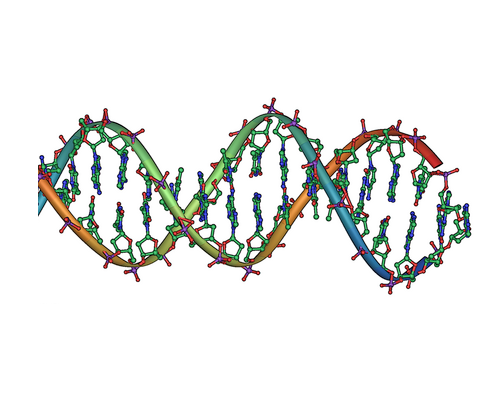
Below, I offer a passage from a lecture by Francis S. Collins, M.D. (University of North Carolina at Chapel Hill), Ph.D. (Yale University), entitled “The Language of God: A Believer Looks at the Human Genome” and delivered on 3 December 2008 in New York City as part of the “Socrates in the City” lecture series. Dr. Collins had served, prior to this lecture, as director of the Human Genome Project. Subsequent to giving it, he was named by President Barack Obama as director of the National Institutes of Health, headquartered in Bethesda, Maryland. This is the position in which he currently serves.
“The genome is made of DNA, and it really is an instruction book — that’s a pretty good metaphor. . .
“Suppose you had to guess, assuming you didn’t know the answer, how many of those letters of the instruction book it would take to specify the biological properties of a human being? What number would you guess? It can’t be infinite. You have to have this information inside each cell of your body. Every time the cell divides, it’s got to copy the whole thing; so, you wouldn’t want it to be larger than it had to be, at least, not by much.
“The answer is about three billion. Now, three billion is a large number. Even in Washington, it’s a big number, although some might debate that. It’s hard to think about that number and the fact that you have that inside each cell of your body. If we decided right now, because this is a special evening and this is Socrates in the City, that we should read the human genome, what do you think? Sure, we can do that. I’ll start over here, and you can start reading A, C, G, T, T, G, C, T, and so on, and when you get tired, you can pass it to the next person and we’ll just keep going until we’re done.
“You wouldn’t mind that, right? That would be memorable. But you might not survive, because for seven days a week, twenty-four hours a day, we would be at this task for thirty-one years, and then we’d finally be done. You have that information inside each cell of your body, which is just a phenomenal thing to contemplate, and you got that from your parents.”
From Eric Metaxas, ed., Life, God, and Other Small Topics: Conversations from Socrates in the City (New York: Plume/Penguin, 2011), 304-305.












